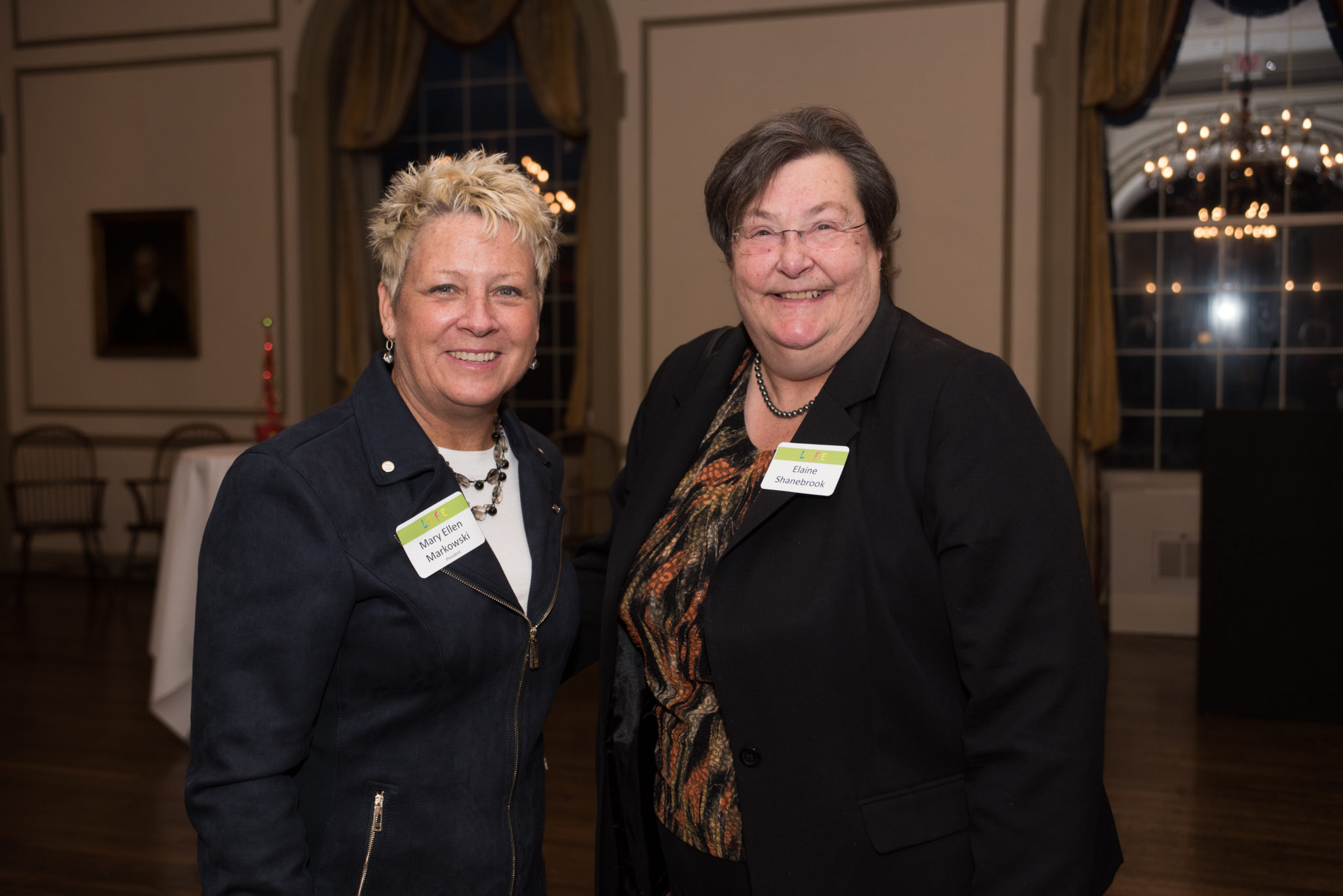COLLEEN JURKIEWICZ
CATHOLIC HERALD STAFF
On the day-to-day level, Elaine Shanebrook’s 40-year career in estate law involved a lot of the minutiae that one would expect — wills, trusts, advance directives, tax regulations. But the overarching theme of the practice itself was something more profound, says Shanebrook, a founding partner at Shanebrook and Falkowski Law Office, LLP in West Bend.
It was really about service — about helping her clients to shape their own legacy.
“I liked the people,” said Shanebrook, who retired last summer. “I loved being able to help people navigate the legalities of their estate plan.”
Shanebrook’s dedication to her clients, and to the greater Catholic community, was recognized late last year by The Catholic Community Foundation, who awarded her their Community Partner Award in December at an annual reception.
The award was in gratitude for Shanebrook’s “dedicated service of bringing awareness of The Catholic Community Foundation to clients seeking to include philanthropy in their estate plans,” said The Catholic Community Foundation in a press release.
“Estate planners like Elaine are really important people for us to work with,” said Mary Ellen Markowski, president of The Catholic Community Foundation. “They know their clients, and they know the interests of their clients.”
Shanebrook is a native of Pontiac, Illinois, and a graduate of the University of Illinois at Urbana-Champaign and Marquette University Law School. She was the first woman from Wisconsin to be elected to the American College of Trust and Estate Counsel, and has previously served as the State Bar of Wisconsin’s chair and director of the Real Property, Probate and Trust Law Section and director of the Taxation Section. She has also been listed in “Best Lawyers in America” and “Wisconsin Super Lawyers.” She has been active in a number of community organizations and currently serves on the St. Joseph’s Community Foundation board of directors, and is a past director and chair of the St. Joseph’s Community Hospital, Inc.
One of her first orders of business upon meeting new clients, said Shanebrook, was always to identify what their priorities were in life — because that would help them dictate what their priorities were when it came to bequeathing their assets.
“I think people come to an attorney wanting ideas,” she said.
In addition to inquiring about family and other circumstances, she would ask if philanthropy was something they had considered. “I don’t push people to do it — this is something that has to be in their heart. But if it’s in their heart, I want them to be comfortable with it and feel good about it,” she said.
If her clients were people of the Catholic faith and expressed an interest in leaving money to charity, Shanebrook served as a bridge between them and the mission of The Catholic Community Foundation.
Founded in 2001, it is an independent 501(c)3 which supports philanthropy through two primary roles, explained Markowski.
“We establish permanent charitable funds to create long-lasting support for the causes that our donors and their families care about,” she said. “We also provide cost-effective, socially responsible investment management to keep the endowment assets of schools, parishes and other Catholic organizations growing.”
“If people decide to give to charity, that’s the first decision they need to make — and then, the second question is, how is it going to get there?” said Shanebrook. “We read about charities who don’t honor people’s wishes or are badly managed or, worse yet, are just corrupt.”
Because of this, she said, she “is a big fan of foundation giving.”
“In foundation giving, you have a structure where you have people to cross-check, and no foundation continues to exist if people don’t follow their donors’ intent,” she said. “Mary Ellen takes very seriously that when they award their grant, the receiving organization does in fact use the money for the purpose that it is given.”
In one instance, said Shanebrook, her client was a childless Catholic man who wanted to leave money to his parish — but he was concerned that, due to its small size and the priest shortage, it may be closed or merged in the future. “Through the Foundation, he was able to provide money to support whatever the archdiocese would do to serve the Church in his particular community, if the parish does not exist when he dies,” she said. “He felt very good about that.”
The donors who work with The Catholic Community Foundation are able to be as involved as they wish with the fund that is established with their gift, said Markowski. There are four types of funds that can be established — an advised fund, designated fund, field of interest fund and unrestricted fund.
With the advised fund option, donors or their designated representatives are able to recommend charitable organizations to benefit from annual grants. It’s often viewed as more cost-effective than setting up a private foundation.
The minimum amount for starting a fund with The Catholic Community Foundation is $25,000. The Foundation has four grant priorities: education, leadership development, health care for the under-served in Milwaukee, and community-building. They receive professional investment advice from Colonial Consulting, a New York firm specializing in nonprofits, and they operate in the same way that all community funds operate: donors make a gift in the form of cash, appreciated stock, charitable remainder trusts or bequests, naming their fund and defining its purpose. Assets in this fund are pooled with others administered by The Catholic Community Foundation and invested in a socially responsible manner. A portion of the annual returns on the donor’s fund is awarded to grants.
“We’re an organization that can help our donors continue to make those charitable contributions when they’re no longer here,” said Markowski.
